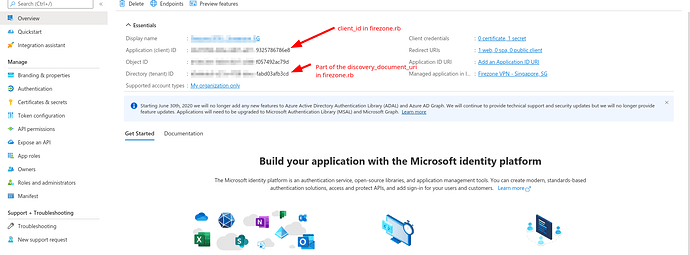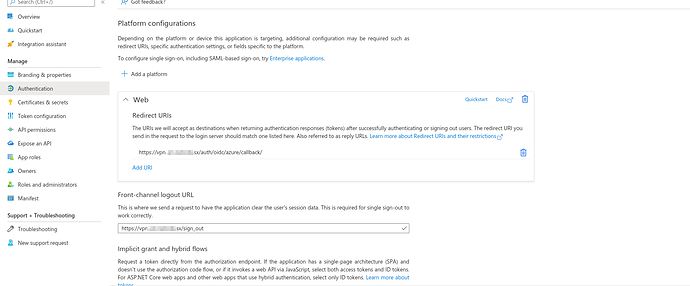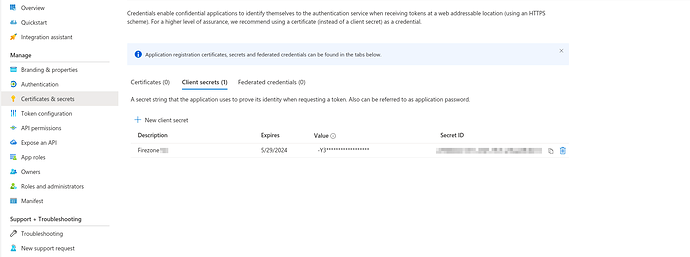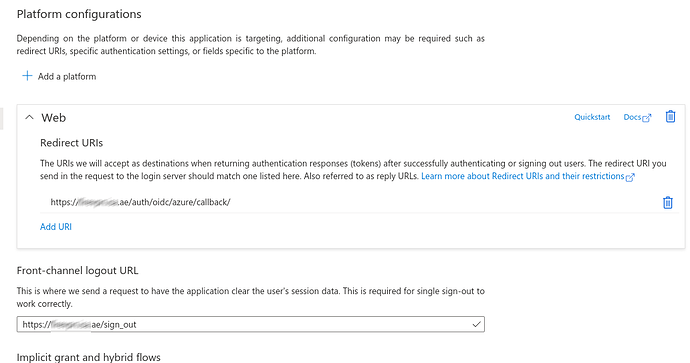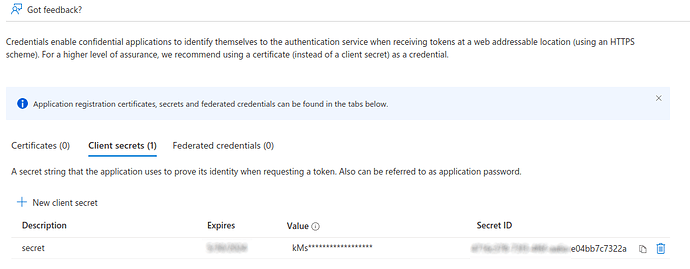2022-05-31_08:34:22.74056 08:34:22.734 [notice] Application fz_http exited: FzHttp.Application.start(:normal, ) returned an error: shutdown: failed to start child: OpenIDConnect.Worker
2022-05-31_08:34:22.74063 ** (EXIT) an exception was raised:
2022-05-31_08:34:22.74064 ** (MatchError) no match of right hand side value: {:error, :update_documents, %HTTPoison.Error{id: nil, reason: :timeout}}
2022-05-31_08:34:22.74065 (openid_connect 0.2.2) lib/openid_connect/worker.ex:55: OpenIDConnect.Worker.update_documents/2
2022-05-31_08:34:22.74066 (openid_connect 0.2.2) lib/openid_connect/worker.ex:23: anonymous fn/1 in OpenIDConnect.Worker.init/1
2022-05-31_08:34:22.74067 (elixir 1.13.4) lib/enum.ex:1593: Enum.“-map/2-lists^map/1-0-”/2
2022-05-31_08:34:22.74068 (elixir 1.13.4) lib/enum.ex:1496: Enum.into/3
2022-05-31_08:34:22.74069 (openid_connect 0.2.2) lib/openid_connect/worker.ex:22: OpenIDConnect.Worker.init/1
2022-05-31_08:34:22.74071 (stdlib 4.0) gen_server.erl:848: :gen_server.init_it/2
2022-05-31_08:34:22.74072 (stdlib 4.0) gen_server.erl:811: :gen_server.init_it/6
2022-05-31_08:34:22.74073 (stdlib 4.0) proc_lib.erl:240: :proc_lib.init_p_do_apply/3
2022-05-31_08:34:24.26114 {“Kernel pid terminated”,application_controller,“{application_start_failure,fz_http,{{shutdown,{failed_to_start_child,‘Elixir.OpenIDConnect.Worker’,{{badmatch,{error,update_documents,#{‘exception’ => true,‘struct’ => ‘Elixir.HTTPoison.Error’,id => nil,reason => timeout}}},[{‘Elixir.OpenIDConnect.Worker’,update_documents,2,[{file,"lib/openid_connect/worker.ex"},{line,55}]},{‘Elixir.OpenIDConnect.Worker’,‘-init/1-fun-0-’,1,[{file,"lib/openid_connect/worker.ex"},{line,23}]},{‘Elixir.Enum’,‘-map/2-lists^map/1-0-’,2,[{file,"lib/enum.ex"},{line,1593}]},{‘Elixir.Enum’,into,3,[{file,"lib/enum.ex"},{line,1496}]},{‘Elixir.OpenIDConnect.Worker’,init,1,[{file,"lib/openid_connect/worker.ex"},{line,22}]},{gen_server,init_it,2,[{file,"gen_server.erl"},{line,848}]},{gen_server,init_it,6,[{file,"gen_server.erl"},{line,811}]},{proc_lib,init_p_do_apply,3,[{file,"proc_lib.erl"},{line,240}]}]}}},{‘Elixir.FzHttp.Application’,start,[normal,]}}}”}
2022-05-31_08:34:24.26172 Kernel pid terminated (application_controller) ({application_start_failure,fz_http,{{shutdown,{failed_to_start_child,‘Elixir.OpenIDConnect.Worker’,{{badmatch,{error,update_documents,#{‘exception’ => true,‘struct’ => ‘Elixir.HTTPoison.Error’,id => nil,reason => timeout}}},[{‘Elixir.OpenIDConnect.Worker’,update_documents,2,[{file,“lib/openid_connect/worker.ex”},{line,55}]},{‘Elixir.OpenIDConnect.Worker’,‘-init/1-fun-0-’,1,[{file,“lib/openid_connect/worker.ex”},{line,23}]},{‘Elixir.Enum’,‘-map/2-lists^map/1-0-’,2,[{file,“lib/enum.ex”},{line,1593}]},{‘Elixir.Enum’,into,3,[{file,“lib/enum.ex”},{line,1496}]},{‘Elixir.OpenIDConnect.Worker’,init,1,[{file,“lib/openid_connect/worker.ex”},{line,22}]},{gen_server,init_it,2,[{file,“gen_server.erl”},{line,848}]},{gen_server,init_it,6,[{file,“gen_server.erl”},{line,811}]},{proc_lib,init_p_do_apply,3,[{file,“proc_lib.erl”},{line,240}]}]}}},{‘Elixir.FzHttp.Application’,start,[normal,]}}})
2022-05-31_08:34:24.26259
2022-05-31_08:34:24.26266 Crash dump is being written to: erl_crash.dump…done
